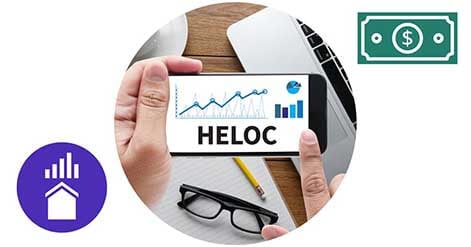You've brought a pistol to a nuclear war

I was quoted today in a CNN Money article, Foreclosure crisis: The $4 billion fix. Specifically, the article was talking about the portion of the recently passed Housing and Economic Recovery Act of 2008 that gives local governments a total of $4 Billion to purchase and rehabilitate or redevelop foreclosed properties. My quote: "$4 billion is kind of a meaningless sum," O'Toole said. "It can't possibly make a difference. You've brought a pistol to a nuclear war."Let me explain...What the article does not say is that based on our exclusive auction tracking we've seen more than $100 Billion in loans foreclosed upon in California since January 2007, and $12.5 Billion in July alone. Keep in mind that the $4 Billion provided in this bill gets divvied up nationwide. By the time California gets their share, we are talking about enough money to perhaps buy 10 percent of the properties foreclosed upon in ONE MONTH. And we've handed the money to local governments that have little or no experience buying, rehabilitating, redeveloping, or managing single-family homes. While we are on the subject, let me share some thoughts and links on other components of this act:
- There are some good arguments to be made that the primary purpose of this act was to bail out the shareholders and executives at Fannie Mae and Freddie Mac at taxpayer expense. Personally, I think we had to rescue these two entities and ensure that they'd continue to be able to raise money to purchase home mortgages as otherwise, all home lending could have instantly seized up sending home prices and the economy into a freefall. But I see ZERO reasons why we needed to rescue their shareholders or executives.
- I think handing the $800 billion increase in our nation's debt limit to Hank Paulson to use to support these entities is akin to putting the fox in the hen house to protect the chickens. Yes, we the American taxpayers are the chickens. Here is an interesting read based on a recent Bloomberg report. And another.
- The HOPE for Homeowners Act which provides for refinancing homeowners with partial debt forgiveness is an interesting concept, but here are a few things to consider: a. It actually is somewhat of a bailout for lenders. By helping the borrower refinance the lender gets 90 percent of current market value, versus foreclosing and selling where losses will certainly be greater. Note that if the borrower then defaults anyway those losses now fall to taxpayers. Is this program really about helping homeowners? b. Most of the foreclosures we see have second mortgages, and under this law, they must be "extinguished" prior to the first mortgage being eligible. The thought is that the first will give some of their 90 cents on the dollar to the second to entice them to walk away. This is easier said than done, which makes me question how effective this program will ever be. c. Some homeowners may question the value of signing up to share equity and future appreciation as part of the deal. Especially those homeowners with non-recourse loans. The downside of a couple of years of bad credit by letting the home foreclose may seem like a better deal.
- One thing that you don't hear talked about much is the change to the Capital Gains Exclusion rules that reduce the exclusion based on the portion of time the property was your primary residence. Before this change, you could exclude 100 percent of $250-500k of capital gains on the sale of a primary residence if you had lived in the home for 2 of the last 5 years. Now it would be prorated, limiting the exclusion for that time frame to 40 percent. I personally have no issue with this as I think this exclusion, around since 1998, turned homeowners into speculators and was one of the root causes of the housing bubble. Hat tip to Brad Nix for spotting this buried in the bill.
- The $7500 Homebuyer tax credit -- frankly this is a gimmick that unscrupulous home sellers will waive as a huge benefit to try to get buyers off the fence, but which ultimately is worthless as it has to be paid back over the next 15 years. Woo hoo, save $7500 in taxes this year, pay higher taxes the next fifteen, and owe all of it back if you sell. Touted as an interest-free loan by some, they seem to forget that it comes out of tax revenues so it is at our expense. Will we ever stop trading tomorrow for today.
- Prohibition of seller funded down payment assistance. While this likely hurts home sales short-term, I frankly think this was a good idea. Seems absurd to me to have the seller give the downpayment to a non-profit, who then gives it to the buyer so that the buyer can show a downpayment to qualify for their 97 percent loan. All that this scam accomplishes is to artificially inflate home prices by 3% and put taxpayers more at risk by continuing to back what in reality is 100% financing. Hmm... should we the taxpayer really be backing 100% loans in a declining market? If you think that will work out well you haven't seen the GSE's balance sheets. In my humble opinion, the days of 97% loans are numbered - reality will take hold soon and when it does it is hard to imagine downpayment requirements will go up significantly perhaps with some continued assistance for soldiers, teachers, firefighters, etc...
There is an awful lot in this package, but nothing that strikes me as likely to fundamentally turn the tide. The reality is that housing prices will continue to correct until home prices are once again in line with incomes using traditional financing. The sooner the powers that be accept this and focus on smoothing out the transition while minimizing the effect on taxpayers the better off we will all be. And hopefully next time we'll collectively keep our eye on maintaining home affordability rather than artificially building home equity so that we never have to go through this again.


